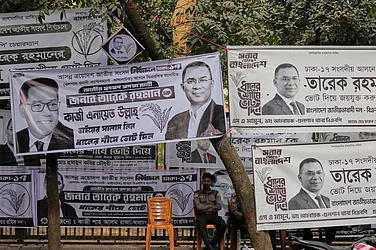In a landmark decision, the government in Singapore has decided to decriminalize sex between men by repealing a colonial-era law. But while the news has brought joy and celebration among the LGBTQIA community in the country and beyond, equal rights for the community might still be a distant dream with the Lee Hsien Loong government stating that it will amend the constitution to ensure same-sex marriage is not allowed,
Prime Minister Lee Hsien Loong, the city-state’s leader, said Sunday that he believed repealing the law is the “right thing to do now” as most Singaporeans will now accept decriminalization. During his speech at the annual National Day Rally, Lee vowed the repeal will be limited and not shake Singapore’s traditional family and societal norms including how marriage is defined, what children are taught in schools, what is shown on television and general public conduct.
“Private sexual behavior between consenting adults does not raise any law and order issue. There is no justification to prosecute people for it nor to make it a crime,” Lee said. “This will bring the law into line with current social mores and I hope provide some relief to gay Singaporeans.”
Repealing a colonial-era law
Many of the bans on sex between men or same sex intercourse in the Asia-Pacific region, a vast area of nearly five billion people with different laws and attitudes, were instituted under British colonial rule in the 19th and 20th centuries, and the laws describe such acts as violations against the “order of nature.”
Section 377A of the Singapore Penal Code was introduced under British colonial rule in the 1930s. British rule over the island ended in 1963 when Singapore became a state of Malaysia. It became independent two years later but retained the Penal Code, which made sex between men punishable by up to two years in jail.
Since 2007, when Parliament last debated whether to repeal Section 377A, its position was to keep the law but not enforce it. But gay men have long maintained that the law hangs over their heads and discriminates against them. Thousands of activists annually stage a rally in the city-state known as the “Pink Dot” in support of the LGBTQ community.
Protecting the sanctity of marriage
While the decriminalisation is being seen as a step in the right direction, the government's emphasis on maintaining the sanctity of the institution of marriage spells caveats for the LGBTQIA community. To prevent any constitutional challenge on the ban on same-sex marriage, the Singapore government is set to amend the constitution to ensure the same. Although many places in the Asia-Pacific area have decriminalized sexual acts between people of the same sex including India, only a few allow same-sex marriage, partnerships or unions.
“Even as we repeal Section 377A, we will uphold and safeguard the institution of marriage,” Lee said. “We have to amend the constitution to protect it. And we will do so. This will help us repeal Section 377A in a controlled and careful way," Singapore PM Lee said.
Lee said he hopes the government’s move will help reconcile and accommodate both the concerns of conservative religious groups and the desires of gay Singaporeans to be respected and accepted.
“All groups should exercise restraint because that is the only way we can move forward as a nation together,” he said. “I hope the new balance will enable Singapore to remain a tolerant and inclusive society for many years to come.”
This new change puts a spotlight on gay marriages as the next bastion of LGBTQIA rights in Singapore as it would effectively mean that any decision on gay marriage will now be in the hands of the government, not the courts.
LGBTQIA rejoice
Singapore’s gay community has hailed the decision as “a triumph of love over fear” but have also warned there is still a long way to equality and new bans on same-sex unions could entrench discrimination against them. More than 20 lesbian, gay, bisexual and transgender groups — including Pink Dot SG that organizes an annual rally that attracts thousands of supporters — said the repeal was long overdue to show that “state-sanctioned discrimination has no place in Singapore.”
(With inputs from Associated Press)


























